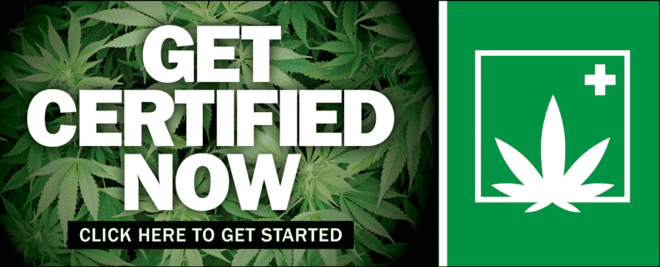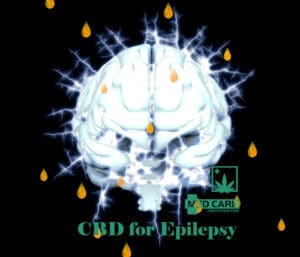
How Medical Marijuana Helps Treat Lupus
- Lupus is an autoimmune condition characterized by an array of symptoms including pain, exhaustion, sun sensitivity, vision problems, and much more.
- Compounds found in medical marijuana have been shown to help module immune and inflammatory responses as well as to treat symptoms of lupus in some patients.
- Medical marijuana dispensaries nationwide carry an array of cannabis flower and cannabis-infused products suitable for the treatment of lupus.
Lupus is an extremely debilitating auto-immune disease. Sadly, there is no cure and the cause of the disease remains a mystery to the medical community. Many of the pharmaceuticals used to treat Lupus are rife with unpleasant, sometimes devastating side effects.
Medical marijuana may be an excellent alternative to traditional medications for many lupus patients. In this article, we’ll explore the benefits of medical marijuana for treating lupus and reducing several of the symptoms of this often debilitating condition
What is Lupus?
Receiving a lupus diagnosis is undeniably devastating as it can lead to the deterioration of many vital organs over time. Simply put, the compromised immune system confuses healthy tissue for unwanted invaders. Lupus sends the body’s immune system into attack mode, commonly targeting the heart, lungs, joints, skin, eyes, and brain.
Flare-ups can cause chronic pain and exhaustion. Many patients with advanced cases of lupus find even simple tasks such as cooking or reading impossible. Additionally, some lupus patients are unable to enjoy outdoor activities without layers of sunscreen, as exposure to sunlight can cause severe sunburn. The condition can also result in swelling, fever, and painful rashes.
Many Lupus patients also deal with anxiety and depression due to chronic pain, exhaustion, and fear of disability and death. Individuals suffering from Lupus also experience bouts of insomnia, due to discomfort and anxiety.
According to the Lupus Foundation of American, 1.5 million Americans suffer from this excruciating disorder. A whopping ninety percent of its victims are women.
With no known cause or cure for lupus, traditional medicine can only ease the symptoms of Lupus. However, many of the prescribed medications can cause unpleasant, often unbearable side effects in some patients.
Patients are often given steroids such as prednisone or cortisone for inflammation reduction. These are highly effective for short-term relief of inflammation but can cause weight gain, fluid retention, infections, insomnia, and osteoporosis.
Pain relievers such as ibuprofen, aspirin, Celebrex, and Voltaren can cause heartburn, nausea, and intestinal and stomach ulcers. Opioids such as hydrocodone and codeine are effective pain relievers but are known to be extremely addictive and even deadly in some cases.
How does medical marijuana help treat Lupus?
Compounds found in marijuana called phytocannabinoids mimic the body’s own naturally produced endocannabinoids. Both types of cannabinoids work with the body’s biological systems to modulate both immune response and inflammatory response.
According to Dr. Koumpouras of Yale University, reducing inflammation is crucial for patients with lupus because it is what causes the buildup of scar tissue in vital organs that can eventually lead to their deterioration and malfunction.
A non-intoxicating phytocannabinoid called cannabidiol, aka CBD, found in cannabis reduces inflammation by interacting with endocannabinoid receptors on the surface of cells throughout the body. This interaction increases the production of inflammation-reducing proteins called resolvins while reducing the production of proteins called cytokines that are responsible for inflammation. CBD is also known to help lessen anxiety.
Another phytocannabinoid called delta-9 tetrahydrocannabinol, or THC, facilitates the release of the neurotransmitters serotonin and dopamine and is responsible for the euphoria and pain reduction associated with marijuana. THC can also be helpful in treating depression and sleep disorders.
Is medical marijuana safe for the treatment of Lupus?
Medical marijuana is completely non-toxic and non-habit-forming when used properly and may provide relief from many lupus symptoms such as pain, insomnia, anxiety, and depression with no serious side effects.
However, some individuals find that consuming excessive amounts of THC can trigger feelings of paranoia. For those patients, products high in CBD and low in THC may be the best option.
Furthermore, it’s very easy to overdo it with the edibles containing THC because the onset time of effects is very slow. Excessive dosages of edibles can cause extremely unpleasant effects such as high anxiety and feelings of paranoia. Never consume more than the recommended serving size.
Moreover, lupus patients may not be able to tolerate smoking cannabis flower, vaping cannabis oil, or dabbing with cannabis concentrates. While these delivery methods offer a fast onset time and high potency, they can cause respiratory issues. Cannabis inhalers might be a better choice for some patients seeking the benefits of cannabinoid inhalation.
How medical marijuana is used to treat Lupus?
Medical marijuana and cannabis-infused medicines come in a wide array of strains, delivery methods, and formulas. The choice of which products a patient uses depends on a variety of factors such as the patient’s physical condition, symptoms, and lifestyle.
As mentioned, inhalation methods (smoking, vaping, dabbing, inhalers) offer extremely fast onset of effects. This can be quite beneficial for treating sudden onset symptoms such as pain or anxiety attacks.
Internal delivery methods such as edibles, oils, tinctures, capsules, tablets, and suppositories, will offer a slower onset time and lower potency. However, these products provide accurate dosing and more consistent levels of cannabinoids in the bloodstream. They are also far more discreet.
Cannabinoid-infused transdermal patches adhere to the skin and release steady, long-lasting effects as the medication is absorbed gradually through the skin.
Some experimentation might be required to determine the ideal combination of cannabinoids. Some patients may benefit from hemp-derived CBD products which can be purchased without a medical marijuana card. Others find that some level of THC provides greater symptom relief. While some states require medical patients to obtain a medical marijuana card, others permit all adults 21 and older to purchase cannabis products.
Best marijuana strains for treating lupus
Conclusion
Compounds found in medical marijuana and cannabis-infused medicines help to modulate autoimmune response and reduce inflammation in some lupus patients. Moreover, cannabis can help to reduce symptoms such as pain, sleeplessness, anxiety, and depression.
Many patients are able to shop at dispensaries without a medical marijuana card. However, lupus is a serious medical condition and patients should not be self-medicating. Lupus patients wishing to treat their condition with cannabis should be treated under the care of a knowledgeable medical marijuana doctor.

Sign Up for Medical Cannabis Today!
For potential patients, if you’re ready, we make it easy to connect with a medical marijuana doctor nearby or online. If you are interested in getting certified, please fill out the MMJ patient registration form below and press submit to get started. See if you qualify today!

MedCard Registration Form



















